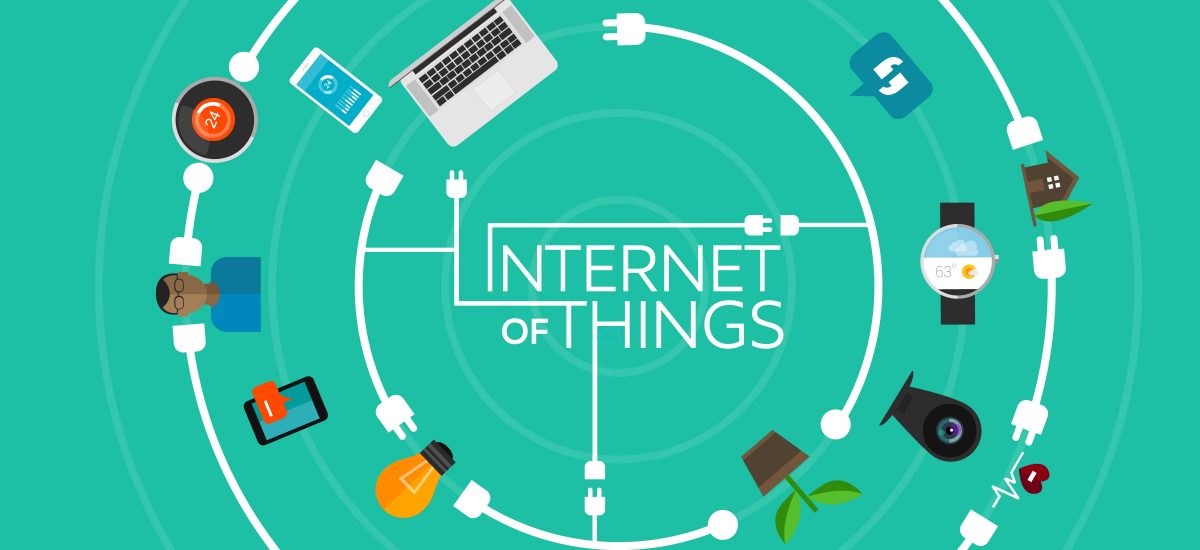The Internet of Things (IoT) will bring about such significant changes in our lives that it is often referred to as “the Second Industrial Revolution”. But what do we mean by the Internet of Things? This technology consists of connecting a large number of ordinary objects, which are traditionally disconnected, to the internet.
In the near future, companies, the government and the public will be able to connect all kinds of objects to the internet; such as cars, fridges, medical equipment or books. In addition, the objects may interact with each other, since all elements are susceptible to transformation.
One of the aspects of human life that will be transformed the most by the Internet of Things will be our homes. Thanks to home automation, many houses truly are already ‘smart homes’. This technology allows things like temperature or lighting to be self-regulated, with the added benefit of producing energy savings. Some blinds, for example, are already equipped with sensors that detect sunlight and can be programmed to protect rooms from heat.
Another of the Internet of Things’ aspirations is to make shopping lists a thing of the past: fridges equipped with special sensors and an internet connection could automatically buy products that have run out or that are no longer suitable for consumption. On the other hand, smart ovens are already available on the market which automatically determine the best way to cook the food inside them. They have a camera inside, allowing the user to observe the cooking process via video on their mobile phone.
The importance of the Internet of Things for companies
In the business sector, increasingly more creative Internet of Things applications are emerging. This has been shown by the Dutch company Sparked, which applies the Internet of Things to livestock. The sensors that they implant allows the movements and health of all of the animals to be monitored, resulting in higher quality meat in greater abundance.
With regard to transport, by 2020 it is expected that there will be 250 million private vehicles connected to the Internet. Road safety, traffic congestion in cities and parking space management are just some of the aspects that will experience considerable improvements thanks to these technologies.
However, one of the most notable advantages of the Internet of Things for companies is the reduction of operating costs: from energy savings in all production processes to applications for minimising equipment failures and automating repair processes. The banking sector is expected to be in third place in terms of those benefiting the most, according to a study conducted by Research Now. In fact, ATMs are considered the pioneering object of the Internet of Things, as they have been connected to the internet since 1974.
The aspect of the financial industry which will play the most important role in the Internet of Things revolution is the way we make payments. This is already happening, for example, with the use of invisible payments for transport with companies such as Uber or Cabify, in which the payment process is completely automatic and does not require any action on the part of the client or the service provider.
The giant, Amazon, on the other hand, is experimenting with invisible payments in physical stores. In their new supermarket in Seattle, consumers can enter the store, pick up the products they want from the shelves and leave the store without passing through the tills. Special sensors implanted in the store detect the products that each customer has taken and charge them the corresponding amount on their credit card. To make this work, technologies such as ‘deep learning’, artificial vision and data fusion are combined. At present, the store is still carrying out tests, but Amazon is scheduled to open more than 2,000 similar stores over the next 10 years. The financial sector is also supporting smartwatches, which are expected to become a key payment method in next few years.
Obstacles to overcome
However, the Internet of Things also faces a series of obstacles and issues that must be overcome before the revolution can occur. One of the biggest problems is expected to be the disparity of technical standards: companies are creating their own standards and this tendency, if it continues, could result in many objects being connected to the Internet but unable to interact with each other. Numerous experts have stressed the importance of creating an international standard.
Another one of the most debated aspects is privacy: continuous monitoring of objects will generate sensitive data, the protection of which must be guaranteed. The moment a device connects to the Internet, it is exposed to the possibility of being hacked. In a study by Business Insider, 39% of participants expressed reluctance to adopt the Internet of Things due to security concerns. Despite these challenges, other experts say that you cannot close the door on the subject and that the revolution implied by the Internet of Things is unstoppable.


